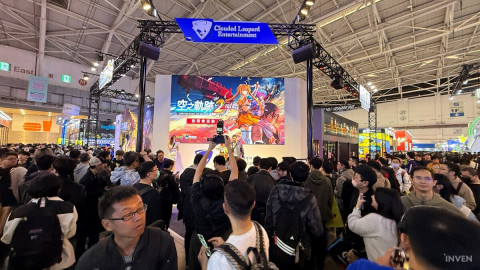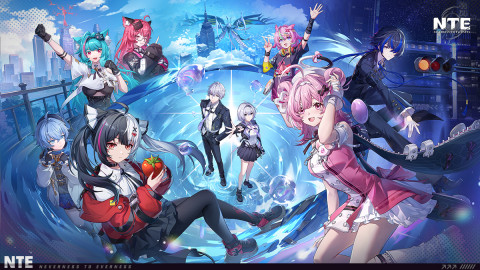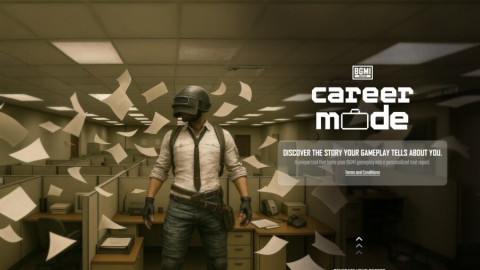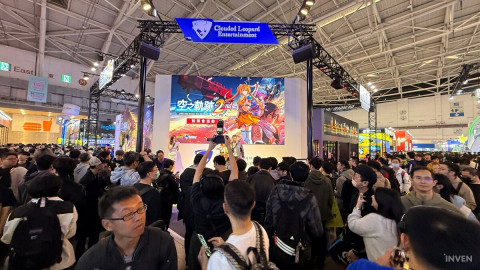
Trevor "Quickshot" Henry. We all know him now as one of the faces of the League of Legends European Championship. But Quickshot grew up about as far from Europe as you can get, in South Africa. We left all current-day League of Legends behind us in an interview with Quickshot, and instead focused on his life before his rise to worldwide fame. In a personal chat, he opened up about being an esports star in South Africa, and the life-changing incident that made him leave the country he was born and raised in.
We've talked about esports, about Worlds, but for this interview I want to focus on you. You grew up in Johannesburg, South Africa. What was that like?
I didn't know it sucked until I left. I'm very fortunate that I have British parents—both of my parents met in South Africa, and then I was born and raised there. I've always had dual citizenship, South African and British. My parents were insanely supportive. When I told them I was getting into competitive video games they didn't support it in the beginning, but I started winning tournaments, I competed in LAN parties in South Africa... I was about fourteen or fifteen years old.
I started playing Warcraft 3 online first, just custom modes. Then I got introduced to Battlefield 2, which got me introduced into a gaming team. I managed to attend a very big LAN party called rAge, which is the biggest LAN in South Africa. My team placed third, I got some prize money, and I was like: "This is really cool." Call of Duty 4 came out, and I fell in love with the game. I started winning a whole bunch of individual tournaments in Free for Alls and Team Deathmatches. I won graphics cards etc. My team ended up trying to be competitive, so we played Tuesday, Thursday, Sunday nights, and all the while I was going to high school and then university.
At university I was studying a bachelor of commerce, in marketing and business management. I was gonna become a marketer or a salesman. While that was going on I managed to find sponsorships for my team, through a local retailer. In a sponsorship meeting my brother was there with me and said: "You guys don't know anything about video games, hire Trevor." I sat there like: "Dude I just want a mouse and a keyboard, shut up, shut up, shut up!" But they gave me a job. I went straight out of university—I finished my degree—into the head office of a retail chain with 65 stores, doing specialized gaming marketing advertising.
How was it to combine university with a competitive gaming career?
It was my life, you know? Friday nights I would see friends socially, and I'd go to bars or clubs, or go hang out, have dinners etc. But every Tuesday, Thursday and Sunday, for about eight years of my life, was gaming. It was scrims, it was with my team, and it was my life. As long as my marks didn't drop, my parents understood. That was a very big expectation setting. When I started attending really big tournaments and getting sponsorships to go to Antwerp Esports Festival in Belgium, and I won a tournament to go to Jönköping in Sweden with Intel, it was hard for my parents to say 'don't do it'. I was clearly good at it.
And you said it got big when you came across Call of Duty 4?
I mean, 'big' is always gonna be a strong word, right? It started. More companies started getting involved. All the event organizers were very small, you know? Like moms and pops, friends and family kind of things. The big telecom provider, Telkom, they actually started to sponsor events, put on tournaments and host servers. They provided journalism and coverage. It was called Telkom Do Gaming. A lot of the guys that owned it and started it, ran it. I was one of the first 'stars' of those things. I was never the #1 player, but I was consistent and I was good at branding, and I managed to travel a lot. I got my name in the press, and it kind of started me down this journey.
Many people will hear the 'Africa' in South Africa, and not understand that competitive gaming can flourish there. I've lived there myself for a year, so I know the circumstances are different in many places, but how would you describe the esports environment?
See, it's so important to know that we don't have very healthy and very strong broadband. Much like countries like the U.S., [South Africa] is huge. You're talking fifteen to sixteen hundred kilometers across. So, DSL and ping is huge. We only played games at a local service. LAN party culture was huge. I attended a LAN party maybe once a month, every month. I would drive two hundred, three hundred kilometers to go to a LAN party, to win like €200 worth of prizes, and go back home. So I carted my PC around a lot, and it was just my life.
Right at the beginning I said living in Johannesburg, I didn't know it sucked. When I grew up and I started travelling a little bit more for these different tournaments and visit family, I started to understand the security issues. You start to understand how, as a South African, you're brought up to live. It's a very different way of life. And I realized that I didn't have to. I very recently spoke about this on the LEC Lounge with Sjokz. I was hijacked in 2010.
That must've been traumatizing.
It was horrific. I woke up in a hospital. I had no pants on, I stank of urine, and I thought I was dead. I genuinely thought I was dead. I thought: "This is what hell is like." I was too afraid to move. During the course of dealing with that, I realized that I had a British passport. I don't have to be here.
It's difficult to explain to people who are not South African, but everyone gets mugged. Everyone gets robbed. Everyone has their homes broken into. Everyone. And if it isn't you, in your immediate family there is someone. There's never any more than one step of separation. So I took my British passport, I started looking for work, I got a job in Germany, and honestly it's the best decision that I ever made, because it led me down this path of getting into video games and shoutcasting.

Was it difficult to just say goodbye to South Africa? The experience was horrifying, but you're still leaving your home country.
I am. It's also important to know that my whole family had left by this point. Even more traumatic and horrific stories had happened to other members of my family. I have a very large family. At the time I had three aunts and at least seven cousins on my mom's side, I had my grandparents as well as four aunts and uncles on my dad's side. By the time I left in 2010, one aunt and one cousin still lived there. Everyone else had emigrated, either to America, the United Kingdom or Australia. It's a sad fact of life. It's one that I've never spoken about publicly. You're the first journalist I've brought it up with, because there is a level of understanding there.
It was difficult, I'm not gonna lie. But my job, my work, my interests have always been my life. I'm not somebody that is tied to a location. I don't have those feelings of grandeur, like: "Oh, this one little place is amazing!" It sounds kind of harsh, but my roots are not planted. I'm like a bird that flies wherever the DSL and the esports is best.
Do you still visit South Africa?
Only once, I have, because of the security reasons and because I don't really have any more family there. I made a deal with my wife and I said that I would take her to meet my cousin, who is very important to me. I would show her Cape Town, I'd show her Durban. We did it once. We went back in 2016, during Christmas. Because of a number of reasons I'm not sure how often I'll go back. I don't have a huge draw. So maybe I'll take my kids there one day, but luckily there are a lot of places to travel to. South Africa is one of the lower ones on my list right now.
Do you still follow the South African esports scene?
I do, yes. I'm still pretty good friends with some of the event organizers and shoutcasters, and I still keep track of the teams. Some very good friends of mine, who own, operate and run Bravado Gaming. I know some of the Overwatch Contenders commentators. So yes I keep tabs. I will never forget what South Africa has done for me. It shaped my personality and my convictions as a person. It does make me happy to see it still growing as best as it can in its market.
Nowadays, South Africa almost always falls under the European servers. You've played there, you still follow it: how is the gaming and esports scene going to spread and create its own region?
The biggest thing is: before any of that can spread, gaming as a whole needs to spread first. I think, if you look at Sub-Saharan Africa and you look at the neighboring countries like Mozambique, Kenya, and you go to Namibia and look back at South Africa, first of all: gaming needs to penetrate more. There need to be more consoles, more mobile phones, more PCs. Secondarily: DSL needs to get better. Much like every other country in the world, until you have a baseline population, a baseline number of players competing, you can't really have thriving esports. Part of the reason that League esports is so healthy right now, is there are hundreds of millions of players over its decade-long life. You can pull some of them to view, you can pull some of them to gameplay, and you can pull some of them to ARAM—which is where I am right now. I think you need to get that playerbase.
I think that we'll really start seeing South Africa and Africa growing in that way, once those things start to become more affordable, once economy starts to develop, once internet starts to grow. At the end of the day, people want to compete. But there need to be enough people to compete against. For esports to grow, that's where the incentives for sponsorships and broadcasts come from.
And the countries themselves also have a lot of development to go through, still.
Exactly. That's true for every single country that is somewhat impoverished or that has bigger problems to solve than when the next League of Legends tournament is. And that's very important to acknowledge.
Image via Riot Games
-

Storyteller by heart. If something is competitive, I am interested in it.
-

Sort by:
Comments :0





